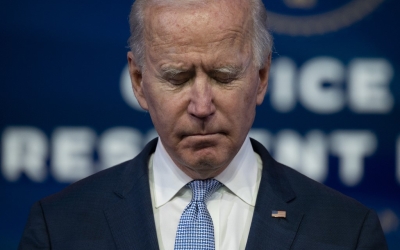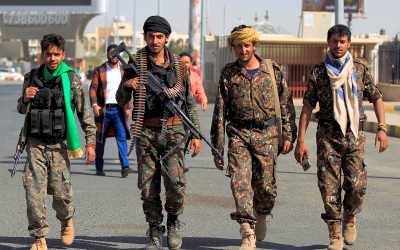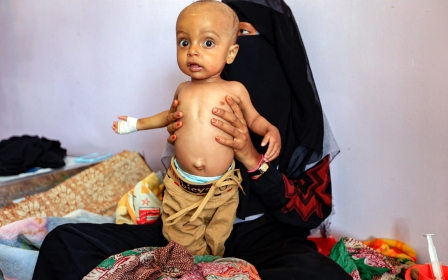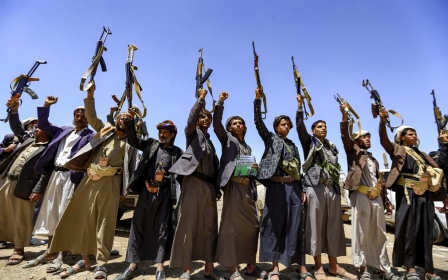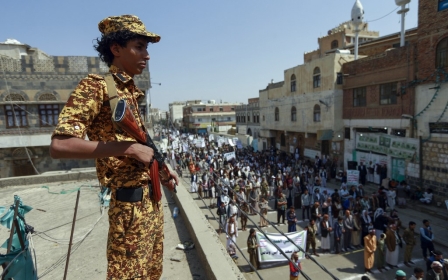US blacklisting of Houthis could 'tip Yemen into huge famine', warns UN
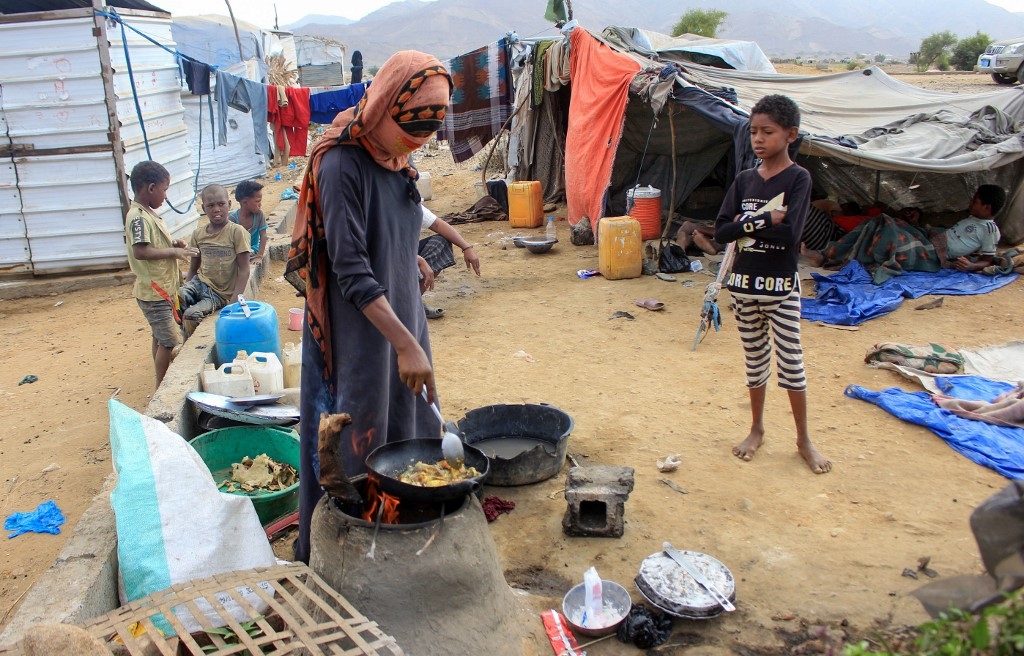
The US plan to designate Yemen's rebel Houthi movement as a foreign terrorist organisation (FTO) is likely to trigger a "famine on a scale that we have not seen for nearly 40 years", the UN's aid chief has said.
Mark Lowcock, director-general of the United Nations Office for the Coordination of Humanitarian Affairs, called for the decision to be reversed, warning the cost of food was likely to increase by as much as 400 percent.
About 50,000 Yemenis are already "starving to death in what is essentially a small famine", he said during Thursday's address to the UN Security Council. "Another five million are just one step behind them."
"Every decision the world makes right now must take this into account."
On Sunday, US Secretary of State Mike Pompeo notified Congress of his intention to designate the Houthis as an FTO on 19 January - one day before President-elect Joe Biden enters office.
New MEE newsletter: Jerusalem Dispatch
Sign up to get the latest insights and analysis on Israel-Palestine, alongside Turkey Unpacked and other MEE newsletters
Pompeo said the aim was to hold the group accountable for "its terrorist acts, including cross-border attacks threatening civilian populations, infrastructure and commercial shipping".
Rights groups and aid agencies have warned against such a move for months, insisting that the designation would accelerate Yemen's slide into a large-scale famine.
"The US designation of the Houthis as a foreign terrorist organisation could be the final straw that tips Yemen into not just a small famine, but a truly huge one," Lowcock tweeted earlier on Thursday.
The UN aid chief warned the Security Council last month that Yemen imports 90 percent of all its food and that those supplies are almost exclusively brought in through commercial channels.
Aid agencies then give people vouchers or cash to buy the commercially imported food from marketplaces.
"Aid agencies cannot - they simply cannot - replace the commercial import system," Lowcock said.
"What this means is that what the commercial importers do is the single biggest determinant of life and death in Yemen."
Aid agencies fear that suppliers, bankers, shippers and insurers will refuse to do business with Yemeni importers if the designation proceeds, as industry leaders weigh the risks of being caught up in US regulatory action that could put them out of business or even into jail.
"Yemenis are crowding into markets and shops to stockpile whatever they can afford. Families are terrified that no more food or other supplies will make it into the country" after the designation goes through, Lowcock said.
'Large-scale famine'
The US, which plans to issue licences and exemptions, has said its sanctions are not supposed to affect humanitarian assistance, but relief workers have documented widespread over-compliance in several aid-reliant countries amid such concerns.
In the case of Yemen, Lowcock warned that things are even more complicated.
"Licences and exemptions for humanitarian agencies will not solve the problem. As I have said, it is not humanitarian agencies who are importing most of the food," Lowcock said.
The Houthis seized Yemen's capital, Sanaa, in late 2014, sparking a civil war that forced President Abd-Rabbu Mansour Hadi to seek refuge in Aden, and then Saudi Arabia.
The group says its movement seeks to help poor and underdeveloped Houthi-majority regions of the country that have been politically marginalised.
But the State Department has insisted that the Houthi group designation is set to crack down on Iran's influence in Yemen. Washington has long labelled the rebel group an Iranian proxy, while Tehran denies providing material support.
In his speech, Lowcock stressed that "the intent of the US invocation of the FTO designation" is not in question, but rather its overbroad impacts.
"What is the likely humanitarian impact? The answer is a large-scale famine on a scale that we have not seen for nearly 40 years," he said.
"Would licences and exemptions for aid agencies prevent that? The answer is no... What would prevent it? A reversal of the decision."
Martin Griffiths, the UN envoy for Yemen, and the UN food chief, David Beasley, echoed Lowcock's call, urging Washington to reverse the decision immediately.
"We are struggling now without the designation. With the designation, it's going to be catastrophic. It literally is going to be a death sentence to hundreds of thousands, if not millions of innocent people, in Yemen," Beasley said.
Saudi Arabia and its allies intervened in the country's civil war in March 2015, and have since carried out more than 20,000 air strikes in an effort to roll back the rebels, with one-third striking non-military sites, including schools, factories and hospitals, according to the Yemen Data Project.
The Trump administration has blocked efforts to censure Saudi Arabia over coalition attacks in the impoverished country.
Biden is expected to take a tough stance on Saudi Arabia , and Democrats have already begun calling on the new administration to reverse the Houthi FTO listing once the new president enters office.
Middle East Eye delivers independent and unrivalled coverage and analysis of the Middle East, North Africa and beyond. To learn more about republishing this content and the associated fees, please fill out this form. More about MEE can be found here.


